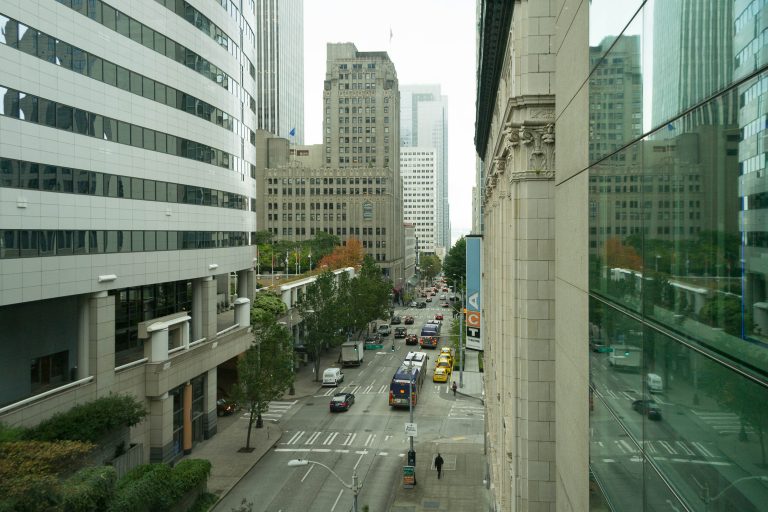Published on August 7, 2019

From the summer haze, and the cars and Ubers and bicycles and scooters and cement trucks and delivery vans and city buses that operate within it, emerges a white truck, the words “Belair Foods” and the image of a carrot plastered on its side. As a small crowd watches, the truck pulls into a parking spot. It parks.
It’s all pretty boring. The city of Washington, DC, hopes it’s the future.
The parking produce truck marked the beginning of a three-month collaboration between the city’s Department of Transportation and a startup called CurbFlow. CurbFlow is building what founder Ali Vahabzadeh calls “an air traffic control tower for city curb space.” Vahabzadeh founded Chariot, the private transit service that sold to Ford and shut down this year. He’s heard the complaints of transportation planners and providers: Curb space is super crowded. And it’s only getting worse—ride-hail use is up, and delivery apps are racing towards record revenue.
Other cities are running other curb-focused experiments, some more analog than others. In 2011, New York City officials worked with businesses on a busy Brooklyn thoroughfare to reconfigure parking and loading regulations, which also helped the city redesign its bus service. The Urban Freight Lab, part of the Supply Chain Transportation & Logistics Center at the University of Washington, is dedicated to researching how to move goods “the final 50 feet” between the curb and a home or store. Coord and SharedStreets are dedicated to helping cities map the curb, which the companies believe is critical to providing curb-based services.
Continue reading at Wired.
Originally written by Aarian Marshall for Wired.